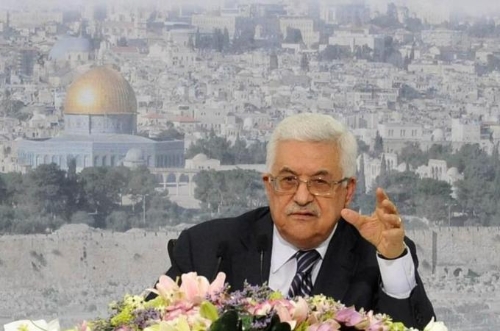PLO and Hamas Sign Reconciliation Agreement
Apr 23 2014 / 7:43 pm
The Guardian – The two main rival Palestinian factions have signed an accord designed to end seven years of sometimes violent division, paving the way for elections later in the year and the formation of a unity government within weeks.
The move, after a day of talks between Hamas and Fatah in Gaza that lasted until three in the morning, comes less than a week before the expiry of the deadline for US-sponsored peace talks between Israel and the Palestinian Authority on 29 April and is certain to complicate US efforts to seek another nine-month extension to those talks.
Israel immediately responded by saying the Palestinian president, Mahmoud Abbas, was moving to peace with Hamas instead of peace with Israel. “He has to choose,” said the prime minister, Binyamin Netanyahu. “Does he want peace with Hamas or peace with Israel? You can have one but not the other. I hope he chooses peace, so far he hasn’t done so.”
After the agreement was announced, Israel cancelled a planned session of peace negotiations with the Palestinians. It also launched an air strike on a site in the north of the Gaza Strip, wounding 12 people including children, which underscored the deep mutual suspicion and hostility that persists.
Speaking in Ramallah in the West Bank, Abbas said in his view the pact with Hamas did not contradict the peace talks he was pursuing with Israel, adding that an independent state living peacefully alongside Israel remained his goal.
The agreement, signed in Gaza City on Wednesday by Ismail Haniyeh, the prime minister of Hamas, and a senior Palestinian Liberation Organisation delegation dispatched by Abbas marks the latest attempt in three years of efforts to end the discord between the two factions.
A packed news conference in Gaza in a hall adjoining Haniyeh’s home in Beach refugee camp cheered as he announced the deal to end the split between the two groups and between Gaza and the West Bank. “This is the good news we have to tell the people: the era of discord is ended,” Haniyeh said.
Although there have been failed attempts to end the rift before, this agreement comes with both factions facing internal problems. Hamas has become ever more isolated internationally, particularly since the like-minded Muslim Brotherhood was ousted in Egypt last year. The new military-led authorities in Cairo have cracked down on the smuggling tunnels into Gaza.
Fatah and Abbas have been damaged by the failure of peace negotiations to deliver results amid continuing Israeli settlement building, all of which has pushed the issue of reconciliation up the agenda.
Despite talk before the announcement about the quick formation of a national unity government and a decree for elections, the wording of the agreement was less cut and dried – suggesting a possible timing for elections in at “least six months” after talks to try to form a new government by agreement.
The statement was also not clear whether Hamas figures would be represented in any new government – which could lead to a cut in EU and US funding. Sceptics, however, noted that similar agreements between the two sides – under Arab sponsorship – have been reached in the past but never implemented.
In Washington state department spokesperson Jen Psaki said the US was troubled by the announcement, which “could seriously complicate” negotiations to extend peace negotiations.
“This certainly is disappointing and raises concerns about our efforts to extend the negotiations,” she said.
“It is hard to see how Israel can be expected to negotiate with a government that doesn’t believe in its right to exist.” She also indicated there could be broader implications for an array of US policies towards Palestine, including aid, should Hamas enter into government without abiding a set of principles, including recognition of Israel, agreement to previous agreements, and a commitment to non-violence, dictated by Washington.
Secretary of state John Kerry spoke on the phone with Netanyahu on Tuesday, while other senior US diplomats on the ground have spoken with Mahmoud Abbas.
The root of recent conflict between the two largest Palestinian movements follows the 2006 elections which Hamas won but the west, Israel and Abbas largely refused to recognise.
Hamas asserted its control of Gaza in 2007 leaving Abbas in charge of only parts of the West Bank. Since then both sides have become entrenched in their territories, setting up respective governments and their own security forces, and arresting their rivals.
Key stumbling blocks in previous attempts at reconciliation have been focused on security forces and on the Palestinian Authority’s security co-operation arrangements on the West Bank that have seen the authority arrest and jail members of Hamas and Islamic Jihad.
There was no mention in the announcement that security co-operation with Israel would change.
Despite Netanyahu’s comments, later in the day a senior Israeli official was more cautious about the implications of the Gaza deal. “The agreement is vague on details and the prime minister’s office is consulting tonight the meaning of it. It does not bode well but for the moment the policy is wait and see.”

